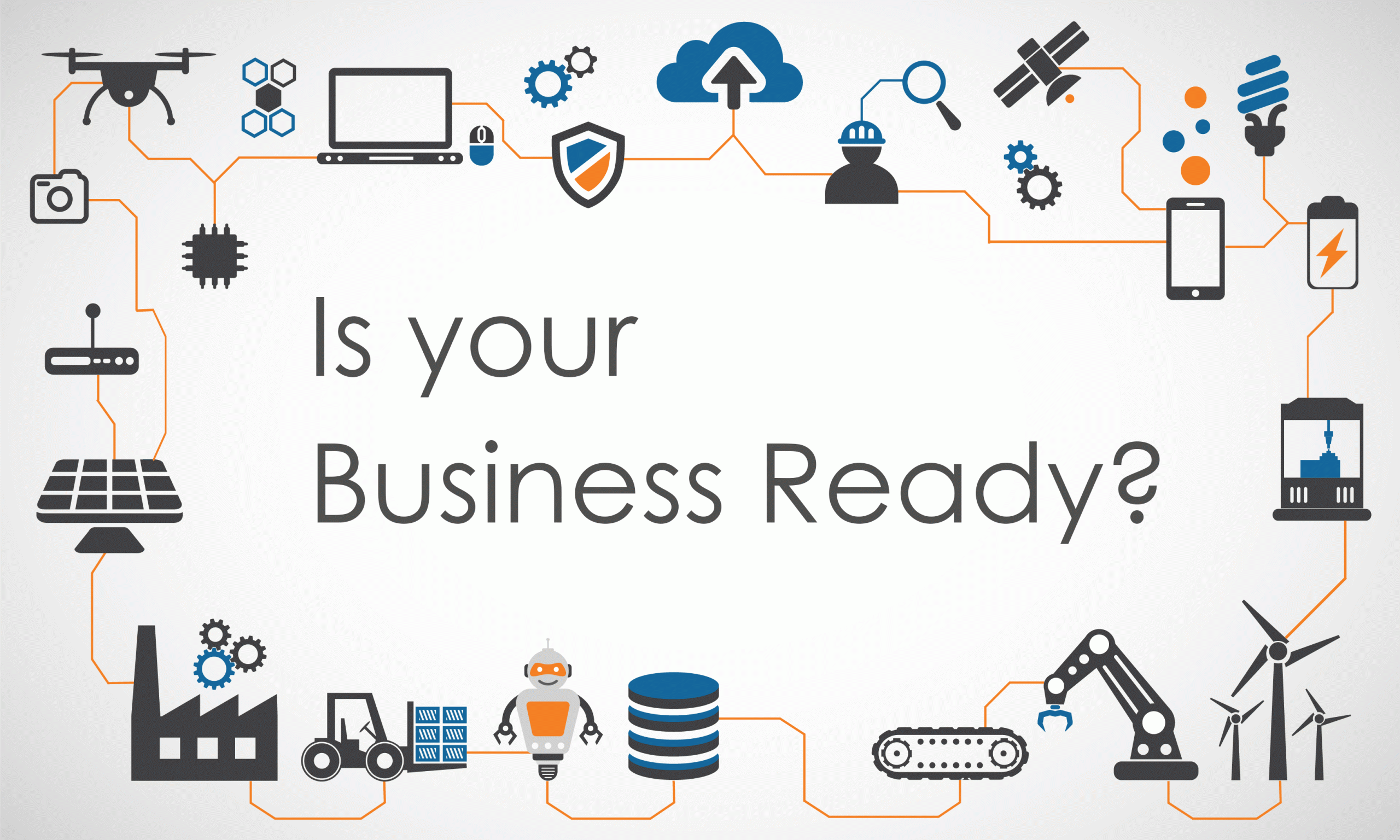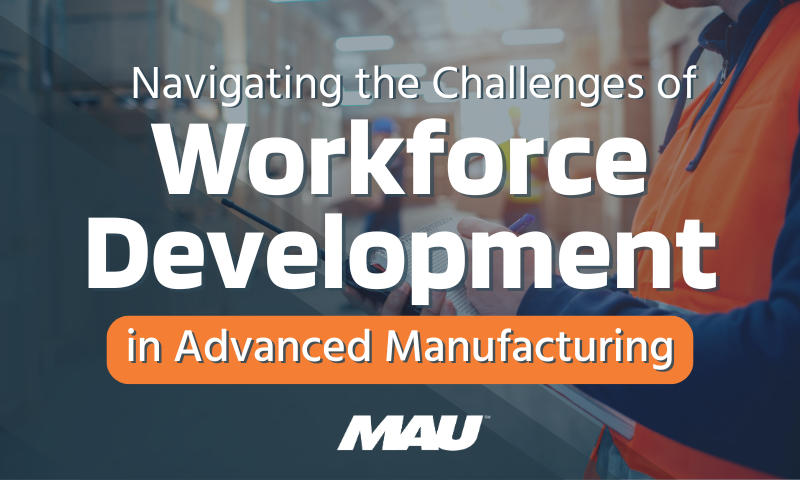You’ve likely heard the term “Industry 4.0” being thrown around like confetti in the business world, but what exactly does it mean?
In this blog post, we’re going to break down the basics and demystify the term so you can participate in compelling water cooler conversation with confidence.
As Industry 4.0 continues to evolve and the fourth industrial revolution emerges, here are a few things you should know.
What is Industry 4.0?
Industry 4.0 refers to a major transformation in the way we live, work, and communicate that is happening right now. Thanks to advanced computing power, computers are now connected and communicate with one another to share important information and even make decisions without human interference.
Technologies like the cloud, AI, mobile, IoT, and more have emerged, forever shifting the way we manufacture products and ushering in what many refer to as the fourth industrial revolution.
Here’s how our friends at Wikipedia define Industry 4.0:
Industry 4.0 is a name given to the current trend of automation and data exchange in manufacturing technologies. It includes cyber-physical systems, the Internet of things, cloud computing and cognitive computing. Industry 4.0 is commonly referred to as the fourth industrial revolution.
How Did We Get Here?
When you think about the industrial revolution, maybe you think of a single moment in time that profoundly shifted the world. In reality, there have now been four distinct periods of industrial revolution in our history.
The first industrial revolution can be dated back to 1765 with the creation of a new type of energy with the invention of the steam engine. By the end of the 19th century in 1870, the emergence of gas, oil, and electricity gave birth to the combustion engine, mass production, and a second industrial revolution. This was also around the time when inventions like the telegraph, telephone, car, and airplane entered the scene, advancing our communication and travel capabilities.
Fast forward to the second half of the 20th century and the third industrial revolution when the world began its digital revolution. Computers and information technology powered automated production and the internet disrupted virtually every industry.
Today, the fourth industrial revolution is unfolding before our eyes. Rather than some new type of energy being the center of the show, this revolution is all about digitization and the way emerging technologies are becoming embedded in our society and in our lives.
What is the Potential Impact?
Big changes tend to usher in the unknown, and many are fearful of what Industry 4.0 could mean for their businesses and lives. Others recognize the positive impact these innovations will bring.
Manufacturing, for one, will inevitably become more efficient and productive. Businesses across industries will find ways to leverage emerging technologies and interconnectivity to reduce costs, increase collaboration, and create new revenue streams. As physical production and smart technologies continue to combine forces, interconnectivity and real-time insights will become our new reality, along with enhanced customer experiences, increased profits, decreased costs, and innovative collaboration and coordination opportunities.
Is your business ready for the disruption and opportunity that Industry 4.0 will bring? Are you looking for the right talent to help you adopt emerging technologies with confidence? Contact the 3Ci team by clicking below.
{{cta(‘ae4ccce5-68a6-40ba-9f57-785a51b16d2d’,’justifycenter’)}}
{{cta(‘8eea82d6-25f4-4e8b-bc21-a438482d0628′,’justifycenter’)}}




